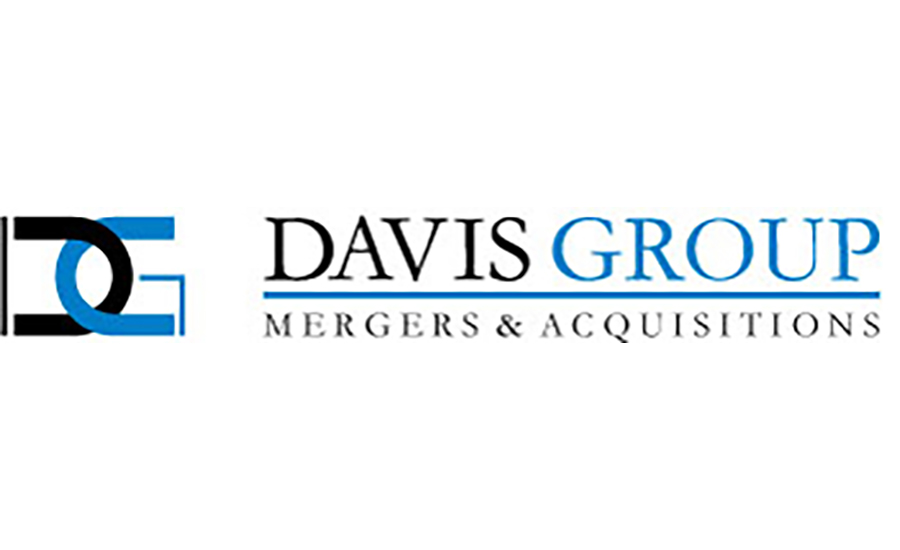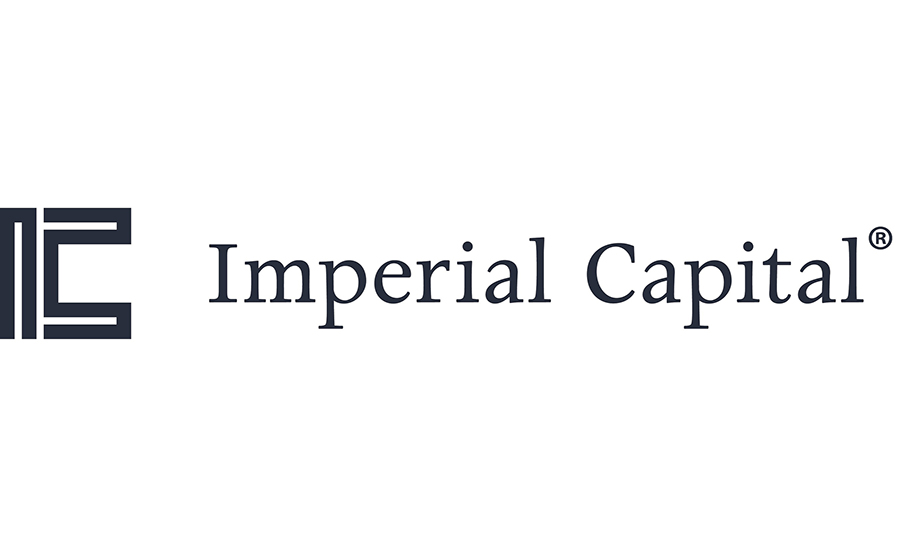The U.S. economy is shifting precipitously and the security industry is watching with intent at the effect on financial markets — chiefly, a steep climb in interest rates over the past few months. In November 2022 the prime rate in the U.S. stood at 7 percent, which is the highest level seen since 2007. Another rate hike was expected in December, which would bring the prime rate to 7.5 percent and cause interest rates to rise further.
In addition to higher interest, security companies are looking at inflation of 7.75 percent, a labor shortage, equipment delays stemming from the supply chain issue, and a recession looming on the horizon. They’re wondering if it makes sense at this time to seek capital to make an acquisition, to grow their business, or for other liquidity purposes.
“There’s a lot going on in the financial markets that’s affecting the largest of the players the most,” says Sean Forrest, CEO, Alarm Connections, West Chester, Pa., about the environment for mergers and acquisitions [M&A] today. “I think the financial markets in turmoil will certainly affect the largest of the deals.”
M&A was one of the topics discussed in depth at the Securing New Ground conference held in November in New York. M&A activity was at an all-time high in 2021, at a rate which never may be replicated again, financial professionals say. But it’s not necessarily due to higher interest rates that M&A activity has since slowed; nor does higher interest necessarily mean that deals will cease to occur.
Pent-up demand from 2020, low interest rates, good industry performance and strong macro-trends intersecting with the industry all contributed to a big year for M&A in 2021, says John E. Mack III, executive vice president, co-head of investment banking and head of mergers and acquisitions at Imperial Capital, Los Angeles. Those macro-trends include artificial intelligence, Internet of Things (IoT), cyber, and a relatively new industry segment called proptech, which covers any technology that helps people manage, use, or buy/sell/rent a property and ranks on the Security Industry Association’s annual report of 2022 Security Megatrends.
Following the banner year in 2021, M&A activity in the security industry started to slow last year. “In 2022, a number of factors [were] mitigating against continued high levels of M&A, including the significant decline in public equity market valuations, the significant increase in the cost of debt capital with the Fed raising rates aggressively, continued supply chain challenges, employment hiring challenges, inflation and the risk of recession, and the overhang of geopolitical risk,” Mack says.
As the security industry welcomes the new year, these economic and business issues, which have lingered throughout the coronavirus pandemic, likely will continue in 2023.
“Half of our loans are for acquisitions,” notes Jim Wooster, president, Alarm Financial Services Inc., San Raphael, Calif. “In March 2020 the acquisitions kind of ground to a halt while everybody played wait and see, not knowing whether attrition was going to go to 20 percent. A lot of deals got delayed into 2021, so 2021 was a big year for us in terms of new loans. Now, 2022 has gone back to the mean and things have been pretty steady for us.”
Financial support provided by the federal government, such as the Paycheck Protection Program, played a role in keeping many businesses afloat. “Everyone thought as soon as the pandemic started that the floor was going to drop out. Then all of a sudden business was booming because of all the government support,” says David Stang, founder, Stang Capital Advisory LLC, Chicago.
As a result, 2020 was a good year financially for many security companies, and 2021 was a really good year for many, Stang says. “Now with inflation, low unemployment [and] rising interest rates — the economists think we’re entering a recession in 2023.”
Rising Interest & Debt Capital
Rising interest rates make it more expensive to borrow money for growth or for acquisitions, Stang emphasizes, adding that issues such as supply chain delays may cause lenders to cast doubt on borrowers’ growth plans. “Buyers and lenders are looking at borrowers and companies they may buy very closely, trying to scrutinize their financial performance. It’s just the right time now for them to be a little more cautious, as opposed to trying to believe very aggressive growth plans that someone might put in front of you.
“Business is still solid, but put all those things together and it doesn’t feel like boom times,” Stang thinks.
Tony Smith, president of Security Funding Associates, Tujunga, Calif., concurs, pointing out that heavy M&A activity in 2021 was no surprise because of the relatively low interest rates. “COVID was an uncertainty without a window. The environment for selling security was in a scattered condition. M&A is slowing [now] because of higher bank interest. Also, there are ongoing problems with supply chain issues and — the biggest — hiring key personnel,” Smith says, adding that the security industry must do more than it has in the past to recruit talent.
Despite the fact that demand for security products and services is very robust, lenders recognize that security businesses face a higher degree of operating difficulty today than in past years with supply chain issues and labor shortages. “Business is strong, but more difficult to operate. If you have thought about retiring it’s seeming like a better idea now, because we’re seeing a lot more people do that,” Forrest says.
The availability of debt capital is impacted two-fold, Mack explains. First, banks and lenders are uneasy about the economy in general and all the potential challenges it is encumbering businesses with; thus, lenders are being more conservative about underwriting standards, looking for higher quality and less leverage. This reduces debt available for M&A, Mack says.
Second, the cost of debt capital has gone up greater than 400 basis points in the last nine months (as of late November 2022). “It would appear this will continue into 2023 before hopefully stabilizing by the end of 2023; the higher cost of debt makes M&A more expensive and thus less attractive, reducing activity,” Mack summarizes.
Demand for Security & Equity Capital
That doesn’t mean M&A will stall in 2023. Valuations are holding for some companies as deals sometimes are comprised of different types of financing — for example, a mix of both debt and equity capital. “For the availability of equity capital, private equity investors continue to have record amounts of capital to invest and the security industry remains an attractive sector for investment,” Mack describes.
Les Gold, partner & chair of MSK’s Security Alarm & Monitoring Technology Practice Group, Mitchell Silberberg & Knupp LLP, Los Angeles, and author of SDM’s Security & the Law column, says one of those attractive attributes — detecting and preventing crime — is helping to stimulate the availability of capital for M&A. “I really don’t think M&A activity will slow down and that’s based on my experience over all the years that we worked on M&A matters. When the economy gets a little tougher, crime goes up. Crime goes up, companies get busier. And as companies get busier, they become more valuable. There could be a temporary cut-back, but my own personal opinion is I think M&A is going to be strong,” Gold says.
In these economic conditions, private equity groups are looking for the best run companies. “There’s a lot of capital out there, but with higher interest rates, the economy and so forth, they’re being a little more diligent and scrutinizing the best performers,” Stang says. “I think that the higher quality companies can still raise money, and can still be sold for very good valuations.”
While banks historically have provided liquidity to companies at the top of the security market, smaller dealers have limited opportunities, Forrest says. One trend he has seen is among smaller dealers who are ready to retire — and perhaps even delayed their retirement because of the pandemic — and now are transitioning their business to different ownership.
“My market is the small to medium-sized alarm dealer with $150,000 or less of recurring monthly revenue [RMR]. It’s a different world in that segment of the market,” Wooster says. He agrees that M&A activity is slowing down, but not in that segment because it is driven largely by demographics such as age.
“If an alarm dealer is retiring, they’re retiring. And sure, they would like the interest rates to be a little lower because that’s going to enable a buyer to maybe pay a little bit more. But they’re ready to retire, so that demographic wave is driving the market for my dealers in terms of mergers and acquisitions more than anything else,” Wooster says.
Looking Ahead: Green Light, Yellow Light or Red Light?
How will a higher-interest-rate environment affect M&A financing in the security industry overall? Mark Melendes, security industry group head, CIBC Bank US, Chicago, thinks it will impact all parties involved. Operators, investors and creditors all will have to double check their financial models; and highly leveraged security companies might have to make some difficult choices in the months ahead as interest expense eats more of their free cash flow, he predicts.
“Higher interest rates will likely reduce the amount investors are willing to pay, and creditors will want to make sure that security companies are generating sufficient cash flow to cover increased debt service,” Melendes says.
At some point higher interest rates will lead to lower availability of capital to the market as debt service becomes more challenging at the higher rates, says Mark Sandler, managing director, SPP Advisors LLC, Charlotte, N.C. “Companies that are low leveraged can take advantage of that as lenders will look to the better credit borrowers as lending customers. The marginal credit borrowers will struggle to obtain financing in a more difficult lending environment,” he foresees.
In the big picture, there are positives and negatives concerning the impact of the economy on M&A activity, Wooster says. Supply chain delays, increasing cost of labor, and rising fuel prices are the negatives. “But look at the demand for the services and if the purchase multiples are going up, it’s because the buyers see sunny skies ahead. They understand these negative aspects, but they obviously see more positive than negative and it’s driven by the demand,” he says.
Unlike many other industries, the security industry has proven itself to be a good investment. Some like to say it’s almost “recession-proof.”
“Most lenders expect interest rates to continue to rise in the near term, and they see an increasing likelihood of a recession,” says Henry Edmonds, president, The Edmonds Group LLC, St. Louis, Mo. “This drives greater caution in general. The security industry is generally recession-resistant, providing some mitigation to lenders’ general concerns.”
Rory Russell, owner of Acquisition & Funding Services, Kattskill Bay, N.Y., says that while industry M&A has been active for a long time now, that could change if the country dips into a recession. “I don’t know, I mean our business is pretty recession-proof, right? It’s one of the reasons why investors like this business so much, because of the fact that it’s so stable. The cash flows are stable; it’s recurring monthly revenue; it’s contracted,” he says.
Lenders and investors also recognize the major role crime plays in growth of the security industry. Although property crime in the U.S. has been declining, other categories, such as violent crime, are increasing and elicit fear of victimization in people. “The recurring revenue nature of the business and the high margins that you generate off of recurring revenue, as well as the growth opportunities because of the crime situation in our country has certainly helped businesses who operate in the security industry, and therefore it attracts capital, as it has always,” Sandler says.
“You hate to say it but [crime] is good for the alarm business,” Gold says. “When you get into the recessionary periods, most companies suffer. The security industry, even though it goes down a little bit in profitability, it’s nothing like the rest of the companies in the country.”
In assessing the overall effect of today’s economy on the ability to obtain capital for M&A, Gold believes it’s going to have an effect principally on smaller companies. “If we’re dealing with financing, the large companies, the integrators, are going to be able to get financing, but the interest rates are going to be higher so it’s going to discourage them a little bit.
“The smaller companies I think are going to have much more difficulty getting financing for an acquisition, basically because they have to pay the money back and while they owe the money the interest rates are going up effectively on an ongoing basis,” he adds.
But M&A has existed in both good economic times and bad. Although smaller dealers will be most impacted and M&A might slow down slightly, Gold and other professionals believe that overall the industry will be well.

 Acquisition & Funding Services specializes in fire, CCTV, integration and security alarm business acquisitions, sales, financing and mergers. AFS provides a variety of services including business valuations, alarm company financing programs, guidance through the selling process, and more to security businesses large and small.
Acquisition & Funding Services specializes in fire, CCTV, integration and security alarm business acquisitions, sales, financing and mergers. AFS provides a variety of services including business valuations, alarm company financing programs, guidance through the selling process, and more to security businesses large and small.
 Alarm Connections will buy a portion of a dealer’s accounts, while the dealer stays in business and continues to earn revenue for service calls, adds, moves, changes, referrals and new sales. Alarm Connections pays highly competitive multiples for accounts and can fund any size account acquisition.
Alarm Connections will buy a portion of a dealer’s accounts, while the dealer stays in business and continues to earn revenue for service calls, adds, moves, changes, referrals and new sales. Alarm Connections pays highly competitive multiples for accounts and can fund any size account acquisition.
 Alarm Financial Services provides funding programs for operating alarm dealers throughout the U.S. With loans to $2 million, AFS assists dealers in growing their businesses organically or through acquisitions, consolidating debt, buying out a partner, etc. In addition, AFS consults with alarm companies throughout the process of selling their business, performing pre-sale due diligence services to improve the sale value.
Alarm Financial Services provides funding programs for operating alarm dealers throughout the U.S. With loans to $2 million, AFS assists dealers in growing their businesses organically or through acquisitions, consolidating debt, buying out a partner, etc. In addition, AFS consults with alarm companies throughout the process of selling their business, performing pre-sale due diligence services to improve the sale value.
 CIBC provides access to credit, treasury management and other financial services to fire, security, video and medical alert firms. Led by a group of industry veterans, their banking team combines financial expertise with deep knowledge of the security and life safety business to deliver solutions and services tailored to their customers’ goals.
CIBC provides access to credit, treasury management and other financial services to fire, security, video and medical alert firms. Led by a group of industry veterans, their banking team combines financial expertise with deep knowledge of the security and life safety business to deliver solutions and services tailored to their customers’ goals.
 Davis Mergers & Acquisitions Group assists alarm and integration company owners to prepare, market and sell their companies throughout North America. Company founder and author, Ron Davis, has addressed thousands of professionals as a keynote speaker, association trainer and raconteur at countless industry events.
Davis Mergers & Acquisitions Group assists alarm and integration company owners to prepare, market and sell their companies throughout North America. Company founder and author, Ron Davis, has addressed thousands of professionals as a keynote speaker, association trainer and raconteur at countless industry events.








